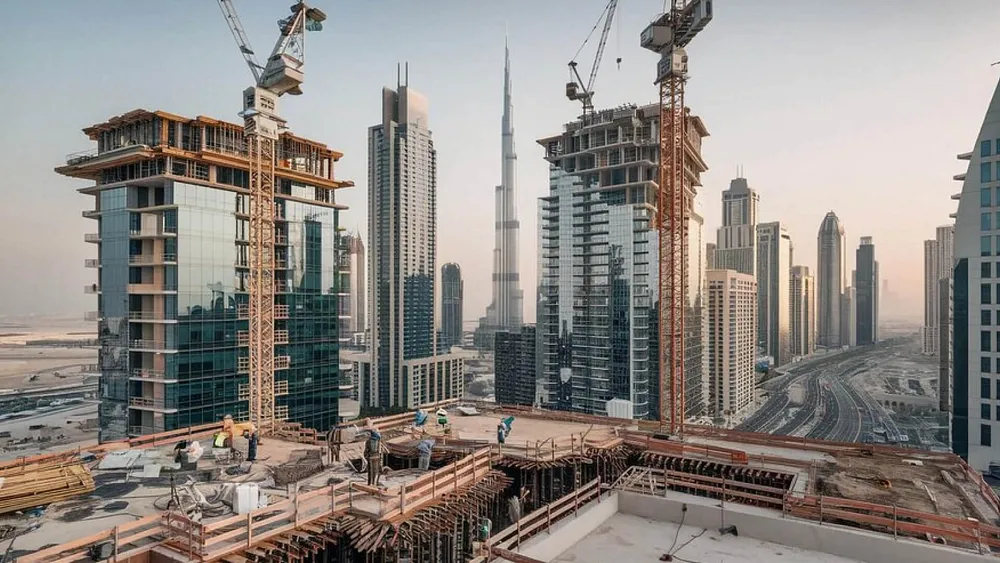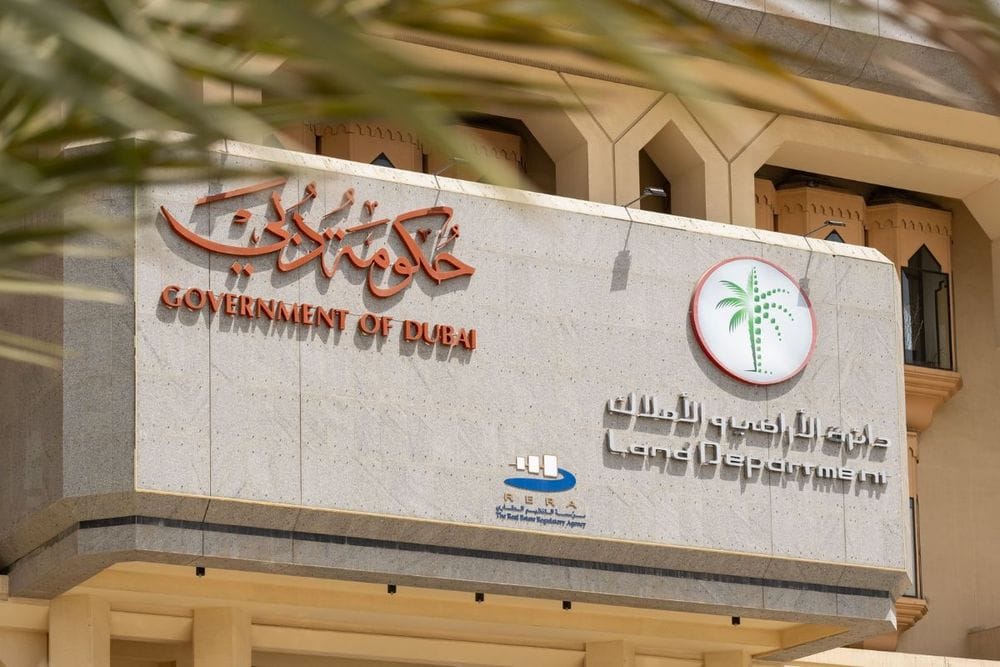VAT on Residential Property In UAE
The United Arab Emirates introduced VAT (value-added tax) in 2018 with a standard rate of 5% and supervised by FTA (federal tax authority) as part of an extensive strategy to modify the nation’s economy and reduce dependence on oil revenues. Although VAT doesn't usually affect residential properties, there are still possibilities that it could affect the real estate market in indirect ways.
At each stage of production or distribution, VAT is levied on the value added to goods or services and 5% is the standard rate which is comparatively low globally but has significantly affected different sectors including real estate.
If you are thinking about investing or even buying properties in vibrant cities like Dubai or Abu Dhabi, understanding the VAT impacts on UAE real estate is essential in making successful business deals.
- Framework for VAT in UAE
- VAT Rules and Zero Rating
- Effects on Residential Property Prices
- Effects on Property Developers
- Influence on Real Estate Investment
- Rental Market Dynamics
- Administrative and Compliance Challenges
- Long-Term Market Implications
- Market Examples and Insights
- Government Initiatives and Support
- Future Visions and Recommendations
Framework for VAT in UAE
VAT implementation and regulation in the UAE are overseen by the Federal Tax Authority (FTA). Most goods and services are subject to the standard rate of 5% under the VAT framework but still, there are exceptions for different occasions as well.
Some categories are treated differently including many important sectors like healthcare, education and residential real estate. While sales of residential property are generally VAT-protected, there are finer aspects that both buyers and sellers need to appreciate to fully comprehend the VAT impact on UAE real estate.
Read More: Should You Rent or Buy Property
VAT Rules and Zero Rating
Many diverse and unique rules govern residential properties for purposes of VAT application within the UAE. Zero-rating ( 0% VAT) applies to residential buildings supplied for the first time within three years from their completion at a rate implying 0% to allow developers to recover related expenses and some of the VAT charges.
Onwards transactions relating to the sale or leasing out of residential property should be exempted from any taxation by VAT. It is essential to understand what impact VAT has on the UAE property market because it significantly influences pricing structure development decisions as well as the general state of affairs and business deals taking place in the real estate market and commercial properties are also completely taxable.
Effects on Residential Property Prices

In terms of housing prices, the introduction of VAT had mixed impacts on the residents including the initial stages where there were worries that developers would be forced to charge higher prices resulting in more costly homes due to increased costs occasioned by the imposition of VAT.
However, effects were limited due to zero rating of newly built houses which had only been introduced for the first supply. Nonetheless, the VAT impact on UAE real estate is still apparent, particularly through escalating costs of building materials and services that developers have had to pay indirectly or are passively transferred to future buyers.
Read More: Renting A Property
Effects on Property Developers

The complexities surrounding VAT compliance have made it difficult for many property developers in the UAE, both in terms of additional administrative burden and extra expenses. This necessitated heavy adjustments such as registering for VAT, filing regular returns, and ensuring proper documentation for zero-rated supplies among others.
Also, while cash flows and refunds of VAT can impact financial planning and liquidity in case of reclaiming VAT-related services concerning zero-rated supplies, all these considerations must be taken into account by developers. These effects of VAT on the UAE property market employ effective financials and operational strategies for all parties involved.
Influence on Real Estate Investment
Also in the investment sector, VAT’s impact is apparent in the United Arab Emirates real estate. Knowledge of whether a residential or commercial property will be treated under VAT is important when it comes to investors during the decision-making process. The exemption of residential properties from VAT in UAE makes them more attractive compared to commercial ones that VAT applies.
Thus, this factor could lead to a change in investment preferences with some individuals and business professionals going for residential because they may seem to be more profitable than other types of houses in terms of taxes. Besides creating transparency for the market due to its clarity, the VAT framework has also been able to enhance investor confidence.
Rental Market Dynamics
The tax effect on real estate in UAE’s rental market is not very strong for residential properties which are exempt from it. However, landlords and property management firms have had to comply with VAT rules specifically when there are mixed-used properties.
On the other hand, commercial tenants have to bear the extra 5% VAT fee and as a result of this regulation, negotiations regarding rent and lease terms may become more difficult while demand for business premises may be affected as well.
Consequently, any distinction between residential and commercial leases under VAT has resulted in separate market dynamics that concerned parties must navigate through.
Read More: Can Outsider Buy Property In Dubai
Administrative and Compliance Challenges
Since the introduction of VAT in 2018, real estate transactions in the UAE have changed in how they are documented and reported. To comply with VAT regulations, companies need to keep accurate records of on-time return filing as well as differentiate zero-rated supplies from exempted ones.
Thus, real estate companies had to invest in training their staff professionally as well as produce systems that ensure that they conform to VAT to record an additional operational cost. The administrative burden of VAT compliance is a notable aspect of the VAT impact on UAE real estate affecting both large developers and small property management firms.
Long-Term Market Implications
The long-term effects of the UAE real estate market due to the implementation of Value Added Tax are still unfolding and some fears about the increasing costs would slow down market activity.
However, gradual adjustment towards implementing VAT regulations and zero rating new residential units helped in stabilizing the sector and it is also expected that more changes will occur in accordance to this issue once people get familiar with taxation matters.
The real estate market in the UAE is likely to be impacted by VAT as the industry expands and takes advantage of tax planning opportunities at the same time, it may be also essential to continuously monitor and adjust VAT policies so that the market remains stable and competitive for investors and buyers over the long-term purposes.
Market Examples and Insights
Examining specific case studies and market examples can provide deeper insights and proper knowledge into the VAT impact on UAE real estate. For instance, major developments in Dubai and Abu Dhabi have shown varying degrees of resilience to VAT-induced cost pressures.
Developers have been able to exploit available means of obtaining tax refunds against their obligations to price their products competitively or at least without excessive markups in some cases since other additional costs were more difficult to manage and cause damages as well.
From these practical matters, one can learn how different developers handled this problem as part of adaptive financial planning on account of changing circumstances across industries.
Read More: Can Foreigners Buy Property In Dubai
Government Initiatives and Support

To assure residents of the enforcement of the VAT system in the United Arab Emirates (UAE), government authorities provided various measures aimed at supporting the property sector. These include setting out clear guidelines, reducing complexity in regulations, conducting awareness campaigns and providing related training programs.
In addition, there has also been a response from the government towards industry feedback that has seen adjustments being made within VAT legalization where practical issues are concerned.
Such movements played a critical role in comforting the VAT impact on the UAE real estate market helping maintain its stability and strength both locally & internationally.
Read More: Selling Property In Dubai
Future Visions and Recommendations

With a great future ahead, The VAT effect on UAE real estate will remain a stronghold and a material driver of market trends and stakeholder conduct in the coming years as well. This calls for market players and investors to be up to date with VAT regulations in order to make relevant decisions as the market adjusts to this new regulation.
Continuous engagement of tax consultants, investment into compliance systems and proactive financial planning are recommended as strategies for managing VAT-related challenges efficiently.
Policymakers also need to have an ongoing dialogue with industry stakeholders and regularly review the VAT policies to address emerging issues and ensure the long-term sustainability of real estate in the UAE.
Read More: Types Of Properties In Dubai
Conclusion
The introduction of VAT in the UAE has had a tremendous impact on the real estate sector, especially on residential properties. While zero rating on new residential buildings relieved the rising potential costs, the overall VAT impact on UAE real estate is diverse which influences pricing, investing choices and market dynamics. The key stakeholders including sellers, investors and policy makers always have had to be up to date with new regulations and be adjustable with new compliance requirements alongside financial planning tactics that are effective in navigating through VAT’s rules. To achieve sustainable growth and successful investment within the UAE’s real estate sector, it's really important that one needs to keep track of and engage with VAT regulations to make a strong stand in the UAE’s dynamic marketplace.
Read Also:


